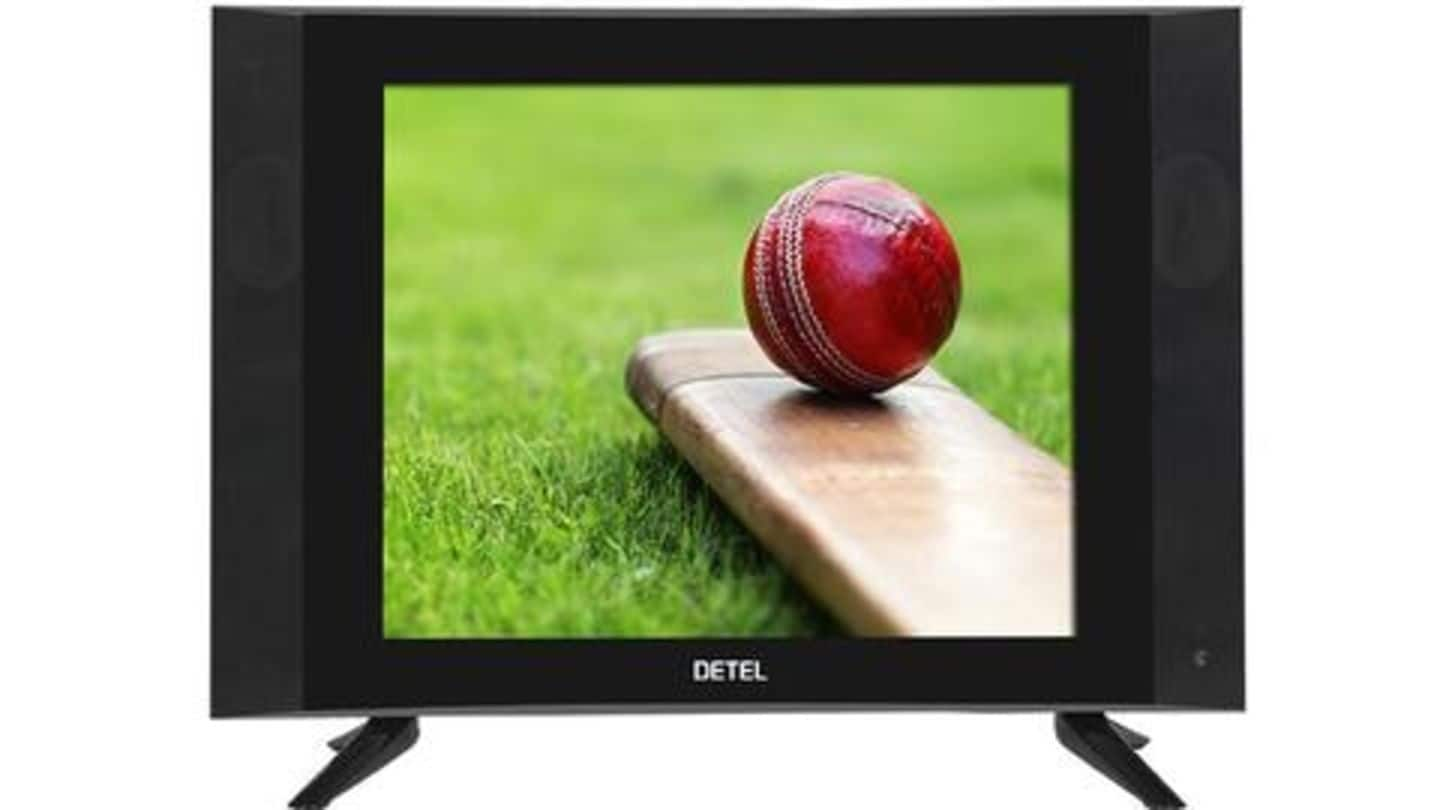
India-based Detel launches 17-inch LED TV for just Rs. 3,699
What's the story
In a bid to grow their business, home-grown electronics manufacturer Detel has launched D1 Star, the cheapest LED TV in the country. The television comes at a dirt-cheap price of Rs. 3,699 and boasts of everything you expect from a decent LED TV: full-HD panel, powerful speakers, and modern connectivity options. It will be available for purchase on Detel's website/app. Here are the details.
Build
Detel D1 Star: Design and display
Just like other affordable televisions, Detel D1 Star sports a simple design with thick bezels all around its 17-inch display. The television promises full-HD (1920 x 1080 pixels) content as well as a decent music experience with two 5-watt speakers on the sides. The speakers are arranged next to the display and can produce pretty immersive sound, according to the company.
Connectivity
Modern connectivity options and warranty
Detel D1 Star covers everything one expects from an affordable television, even in the connectivity department. The LED TV comes with USB, HDMI, VGA ports and lets you connect pen drives, phones or devices like Fire TV Stick and Chromecast. To note, you also get a built-in game and one year of onsite warranty on the television.
Availability
Where you could buy D1 Star
You can buy Detel D1 Star from the company's mobile app or website, but do note that there are no offers and you might have to pay Rs. 200 more for shipping. Meanwhile, distributors and retailers can place a bulk order for the television via B2BAdda.com. To recall, back in November, Detel had also unveiled the cheapest LCD TV priced at Rs. 3,999.
Goal
Mission to make televisions more accessible
As 33% of India's population doesn't own a TV, Detel is hoping to drive a change with its 'economical' products for low-income groups. "We will continue to strive hard in order to make change in the lives of unconnected people," Yogesh Bhatia, Detel's MD, said in a statement. "Every product of ours has a different objective to fill in the gaps in the ecosystem."